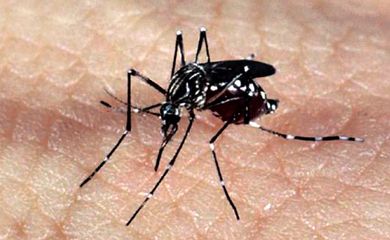Fish help health authorities battle Aedes aegypti in Rio


Quick to reproduce, guppies survive in low-oxygen environments and feed on organic matter, including mosquito eggs and larvae. 

The small and voracious guppy (Poecilia reticulata), also known as millionfish, has been used by the Health Secretariat of the city of Rio de Janeiro to control Aedes aegypti mosquitoes, which are vectors for the dengue, zika, and chikungunya viruses.
Quick to reproduce, guppies survive in low-oxygen environments and feed on organic matter, including mosquito eggs and larvae. According to the Environmental Health Surveillance Coordinator Marcus Vinícius Ferreira, the use of guppies, combined with other initiatives, has helped reduce Aedes aegypti infestation in Rio.
“Guppies eat a lot of larvae and help eliminate the mosquitoes. This gives health inspection workers more confidence about [mosquito] control at locations where the fish are used and therefore more time to carry out thorougher inspections at other locations,” Ferreira said. According to him, about 17,700 dengue cases were reported in the city in 2015, compared to 130,000 in 2012.
The coordinator said the fish are mainly used in abandoned swimming pools, fountains, ponds, and lakes. Inspections at these locations are carried out every two weeks. If guppies are required, the local population can order a supply from the local government.
Translated by Mayra Borges
Fonte: Fish help health authorities battle Aedes aegypti in Rio


